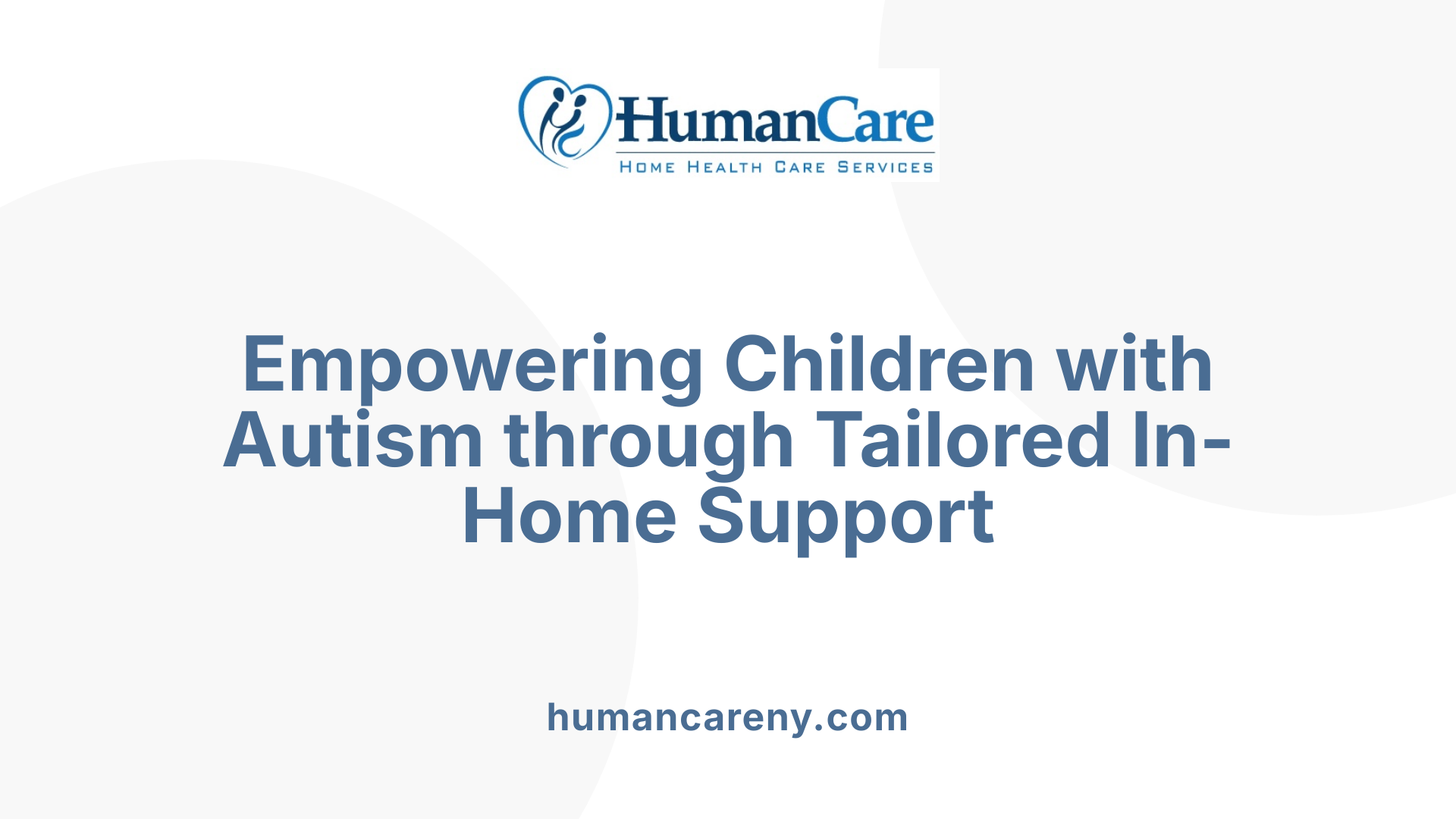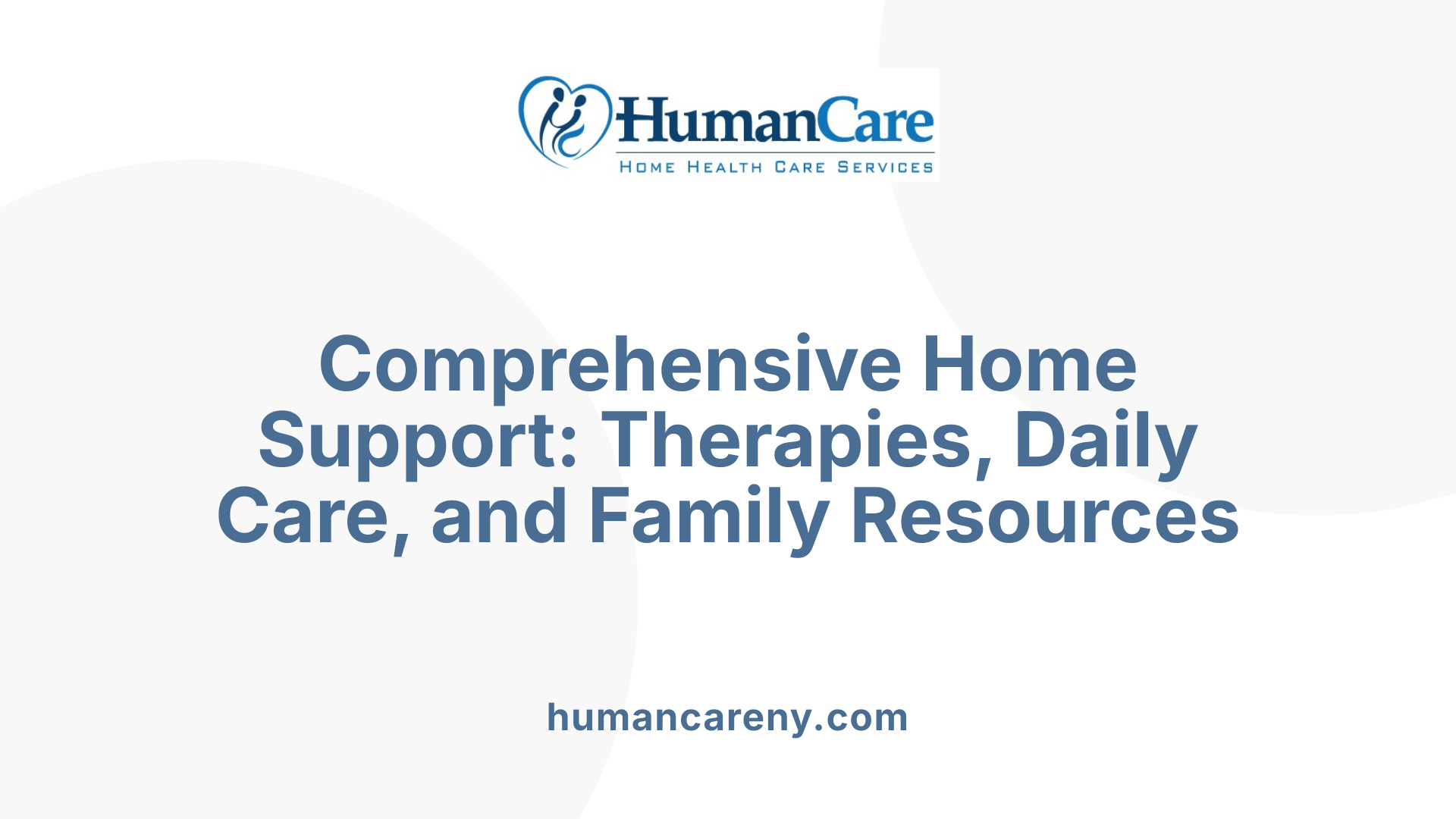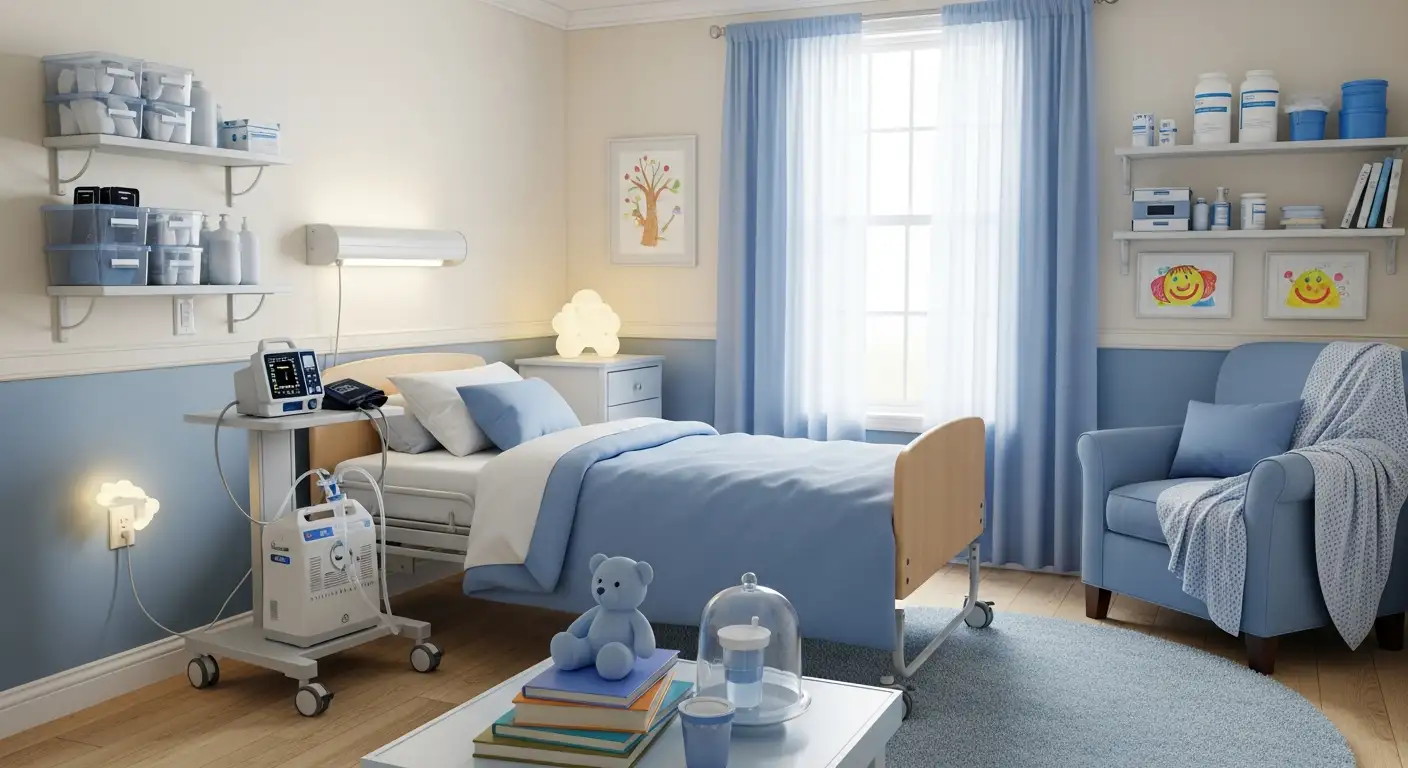Empowering Families and Enhancing Child Development Through Specialized Home Services
Children with autism spectrum disorder (ASD) thrive when their unique needs are met within familiar environments. Pediatric home care offers a holistic, personalized approach that integrates medical, therapeutic, and developmental services directly into the child's home. This article explores how such tailored care supports children with autism, improves outcomes, and strengthens family resilience.
Personalized, In-Home Support for Children with Autism

How does pediatric home care support children with autism?
Pediatric home care offers vital support to children with autism by providing specialized services right in their familiar environment. This approach helps children feel safe and comfortable, making therapy and developmental activities more effective.
Services are tailored to each child's unique needs. These include assistance with everyday activities such as dressing, feeding, and personal hygiene. Speech therapy and occupational therapy are provided to improve communication and daily living skills. Behavioral strategies inspired by Applied Behavior Analysis (ABA) are also used to encourage positive behavior and social interactions.
Care professionals, including registered nurses and trained therapists, work closely with families. They help monitor the child's health, advance developmental progress, and adapt strategies as needed. This close collaboration ensures a consistent, supportive approach to care.
Creating sensory-friendly environments at home is an important part of care. It reduces overstimulation and helps children relax and focus during therapy sessions. Visual aids and other communication tools are often used to improve understanding and facilitate social interactions.
Home care services also empower families by involving them in the care process. Parents and caregivers receive coaching and support, enabling them to actively participate in their child's development. This ongoing partnership improves outcomes and helps children thrive.
In summary, pediatric in-home care provides a comprehensive, personalized approach to supporting children with autism. It promotes independence, enhances communication, and strengthens family involvement, all within a safe and familiar setting.
Expanding Support Services: Therapies and Family Assistance at Home
 Home-based care plays a vital role in supporting children with autism by providing a safe, familiar environment where they can feel comfortable and engaged. Pediatric home care services for children with autism encompass a broad spectrum of support designed to meet medical, developmental, and daily needs.
Home-based care plays a vital role in supporting children with autism by providing a safe, familiar environment where they can feel comfortable and engaged. Pediatric home care services for children with autism encompass a broad spectrum of support designed to meet medical, developmental, and daily needs.
The services include assistance with activities of daily living (ADLs), such as bathing, feeding, dressing, grooming, toileting, and mobility. These tasks are managed by trained professionals, including registered nurses and care providers specialized in pediatric care. Alongside personal care, a variety of therapies are offered to address communication and behavioral challenges. Speech therapy helps improve language skills, while occupational therapy focuses on developing fine motor skills and daily living routines. Behavioral strategies inspired by Applied Behavior Analysis (ABA) are also integrated to support positive behavioral development.
Respite care is a crucial part of in-home services, offering temporary relief for families. This may involve in-home support or placement in specialized facilities for short-term breaks, ensuring children continue to receive attentive care in a safe setting.
Coordination with healthcare teams is essential to delivering effective services. Care plans are developed to incorporate medical management, therapies, educational support, and behavioral health strategies. These plans facilitate communication between families and professionals, allowing for tailored interventions.
Supporting families extends beyond direct care. Emotional support and education are integral to equipping parents and caregivers with the skills needed for daily management. Resources such as caregiver training programs and support groups help reduce stress and improve overall well-being.
Overall, home care services serve as a comprehensive platform that nurtures the child's growth and development while empowering families to actively participate in their child's care journey.
The Benefits of Home-Based Care for Children with Autism
What are the benefits of pediatric home care for children with autism?
Pediatric home care offers many advantages for children with autism, providing a safe and familiar environment that encourages comfort and trust. Delivering services directly in the child's home allows for more personalized and consistent interventions tailored to their unique needs, which can significantly help improve communication and social skills.
In-home care reduces sensory overload and overstimulation that often occurs in clinical settings, making therapy sessions more effective. It supports ongoing therapies such as speech, behavioral, and occupational therapy by seamlessly integrating them into daily routines.
Families benefit from home-based care through increased participation in their child's development. Caregiver training and support help reduce parental stress and prevent burnout, empowering families to actively contribute to their child's growth and well-being.
Moreover, home care fosters stronger family bonds by involving caregivers in daily activities and therapy routines. It also ensures continuous medical and developmental monitoring, allowing for early identification of concerns and adaptation of care plans.
Overall, pediatric home care creates a nurturing environment that promotes developmental progress, enhances communication, and supports the emotional stability of children with autism, all while strengthening family involvement.
The Process of Developing and Implementing Home Care Plans

What processes are involved in pediatric home care for children with autism?
Creating effective home care plans for children with autism involves several coordinated steps. First, a comprehensive assessment is conducted to understand each child's unique developmental, behavioral, and medical needs. This includes evaluating sensory sensitivities, communication skills, and medical issues that may influence care strategies.
Based on this assessment, an individualized care plan is developed. This plan outlines specific therapies, routines, and supports tailored to the child's strengths and challenges. It often incorporates services such as occupational therapy, speech therapy, behavioral interventions like Applied Behavior Analysis (ABA), and parent coaching.
Coordination among healthcare providers is essential to ensure all aspects of the child's well-being are addressed. Pediatricians, therapists, and specialists collaborate to align goals and strategies, often relying on a shared care notebook to track progress and communicate insights.
Regular monitoring is a vital part of the process. Caregivers, clinicians, and families observe the child's responses to interventions, noting changes in behavior, communication, and health. This ongoing assessment helps identify what works well and what requires adjustment.
Care plans are adapted accordingly. For example, if a child shows heightened sensitivities or needs additional support, modifications are made—such as altering routines or trying new therapies.
In hospital or clinical settings, assessments are complemented with strategies like visual aids or environment modifications to support success. Family involvement is emphasized, with training and support given to parents to reinforce therapeutic goals and manage daily routines effectively.
Overall, the process is dynamic and collaborative, focused on providing consistent, individualized care that promotes development and well-being across home, clinical, and residential environments.
Supporting Autism Through Coordinated, Compassionate Care at Home
Pediatric home care plays a vital role in supporting children with autism by offering personalized, comprehensive, and family-centered services that foster development, independence, and emotional well-being. A coordinated approach involving medical professionals, therapists, and families ensures that each child's unique needs are met within a familiar and comfortable setting. Access to therapies, caregiver training, and support systems empowers families, reduces stress, and promotes positive outcomes. As the field advances, integrating innovative support programs—like caregiver skills training and family assistance—will further enhance the quality of life for children with autism and their families, helping them navigate challenges with confidence and hope.
References
- How Home Care Can Support Children with Autism
- The Medical Home for Children With Autism Spectrum ...
- Understanding Residential Placement for Children with ...
- In-Home Care for Children with Special Needs
- Caregiver Skills Training Program
- In-Home Pediatric Therapy
- Pediatric Home Health Care — What You Need to Know
- Evolution and Future of Pediatric Home Health Care
- Pediatric Home Care Services



